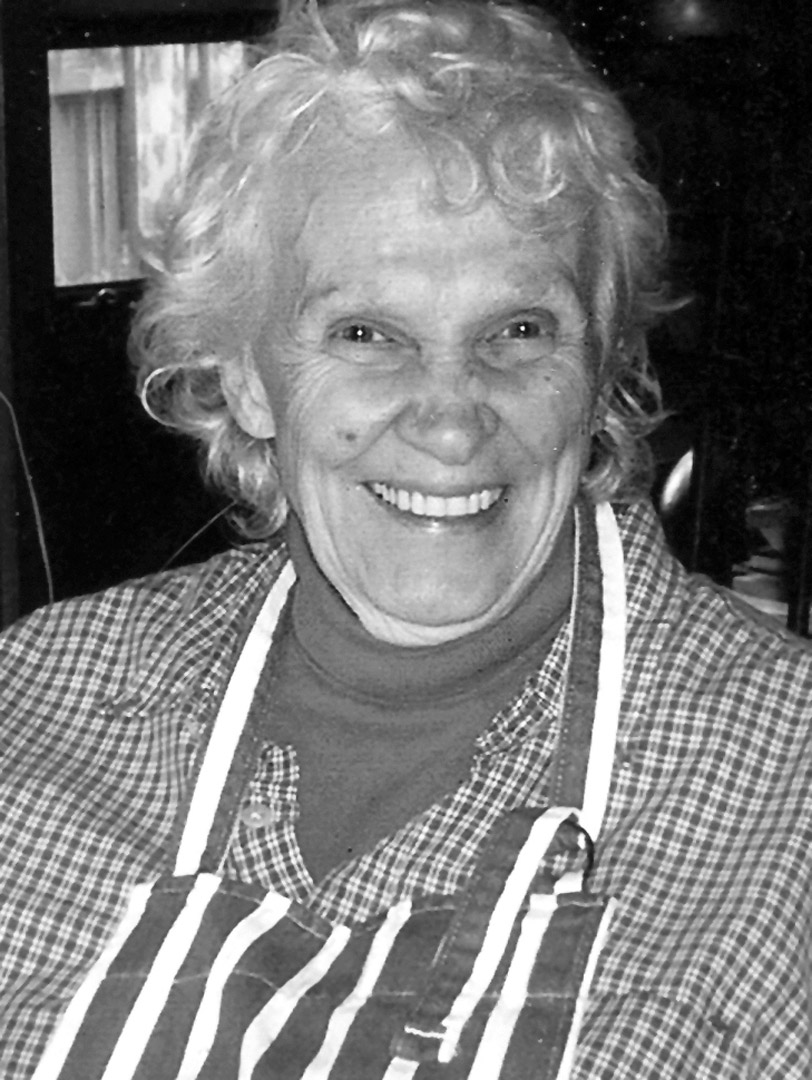Joan Stone taught poetry for years at Colorado College, both creative writing and modern poetry classes. She had an extraordinary ear for poetry, for nuances of sound and rhythm. And she was an exacting teacher. She would sometimes send her poetry students away on the second day of class because they weren’t reading the poems well enough — she would tell them to go home and study harder. Dismissing them was her way of letting students know that they had to come to class prepared and to bring their best to discussions of poems. Poetry was a serious matter to her; it was, I would venture to say, a spiritual matter. Joan cared deeply about her students, who came to her office and told her about their lives. She would often stop one of us, her English colleagues, to show us a poem a student had just written that she admired.
Joan was an extraordinary poet herself. She was not prolific; the writing did not come easily. Her book of poems, gorgeously printed by Jim Trissel at The Press at Colorado College, begins with a piece titled “These Poems Are Hard to Write.” When she wrote a poem, it was an event; there was a sense of visitation, followed by arduous work. Each of her poems was perfectly wrought, muscular and fluid; she was a true lyric poet. Joan grew up hearing her mother recite poems. Later she studied poetry at the University of Washington. Her literary lineage came through Theodore Roethke, Elizabeth Bishop, and Robert Frost, the latter of whom she understood to be a much darker poet than is generally thought. A master of image as well as sound, Joan often drew her imagery from the Pacific Northwest, which was her home. Her work was published in many fine journals, including Poetry Northwest, The Yale Review, and The Georgia Review. Oddly, even before I came to Colorado College and met Joan, I had published her poems in a journal I was editing at the time, the Indiana Review.
Joan was an abundant and generous cook (she loved reading cookbooks). When she arrived in Colorado Springs to teach a block, she’d always settle in by making a batch of chicken soup. Many of us enjoyed meals at her house on Yampa Street. She loved auctions, flea markets, and thrift shops and ran a store of her own for some years in Seattle. She liked to say that she bought her house in Portugal at a flea market! Joan was also a dedicated gardener and she seemed to be constantly renovating and improving whatever house she lived in. Wherever she lived, she created a sense of abundance and beauty and nurturance. A number of her poems describe her mother’s hands: patching scraps into a quilt, deftly wringing a chicken’s neck. I think of Joan’s hands, too, when I think of her, and everything she turned them to, everything she made.
Joan was introverted but had many friendships. When she was in Colorado Springs, her limited time was in high demand; everyone wanted to see her. I wonder if part of what attracted people to Joan so strongly was the fact that she remained connected to what was elemental: to the tides, to fire (she said she’d never wish a fire on anyone, but would go any distance to watch a house burn), to food and the soil it grows from, to the primary facts of birth and death. She understood the patterns and rhythms of life in profound ways. She saw the darkness in the natural world — and in human nature, and her own nature. She was deeply unsentimental and yet a lover of the world.
Joan’s life at Colorado College was one aspect of a larger life spent with her husband Jim Black in Portugal and in Seattle. After she retired, Joan and Jim lived year round on their Wynoochee River ranch until his death, when she remained there in proximity to her children and grandchildren.
Joan closes the title poem of her book, “A Letter to Myself to Water,” with these lines:
I send me this letter home
calling out the wrinkled
rhythm of the sea:
white caps on rocks;
a sun, a moon, a whale
chiseled, still dripping water,
fixed in stone; forever
leaping into light;
the horizon holding it in.
I sound the sea for weather:
a water witch,
I bend toward what I know.
Joan Stone died May 17 in Montesano, Washington.

One Response to A Tribute to Joan Stone
Thank you for this beautiful, accurate portrayal of a uniquely wise and generous soul who transformed countless lives, including mine. What a gift to and from Colorado College she was. What luck to have known her. What a hole she leaves. Big love to you, Joanie.
Comments are closed.